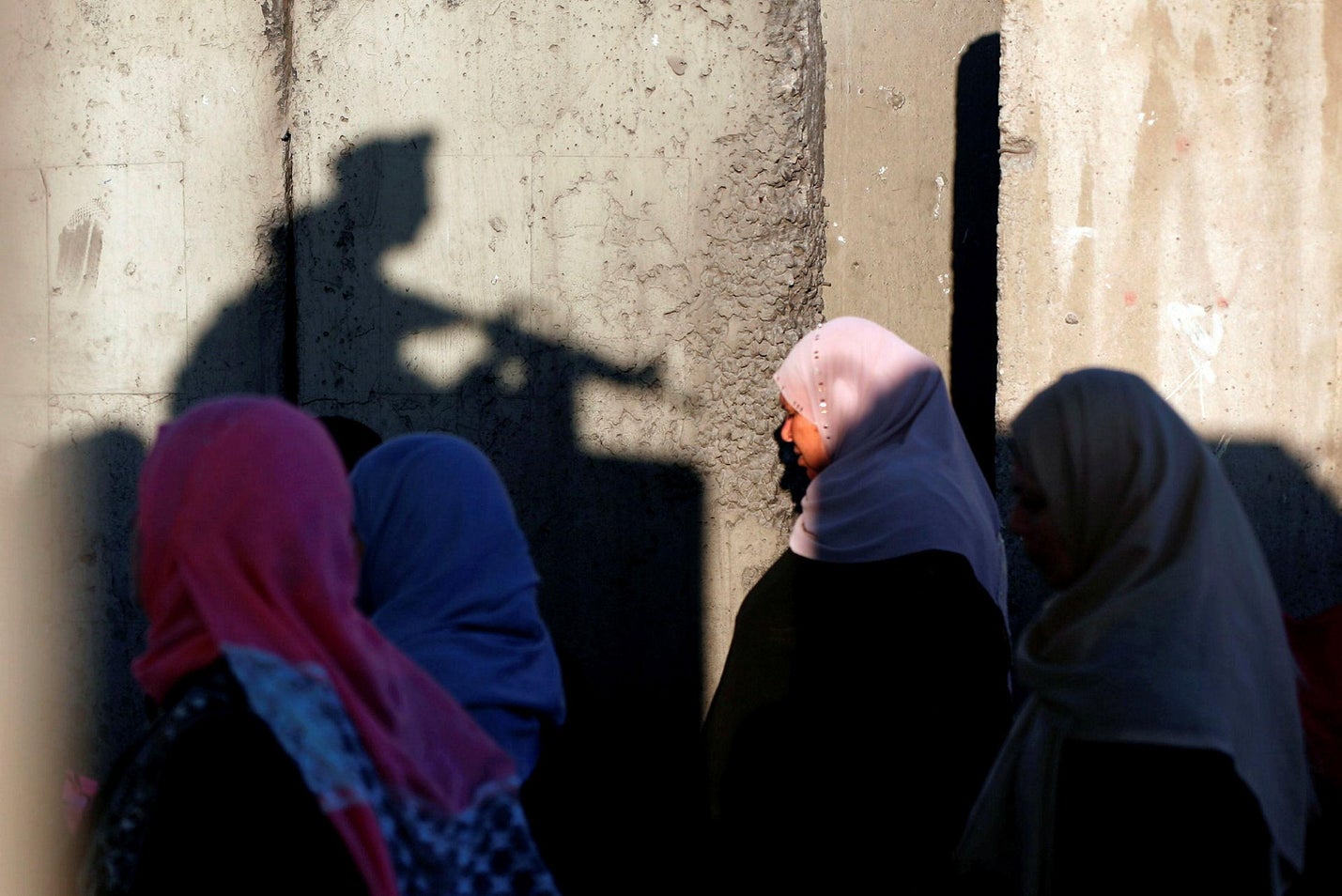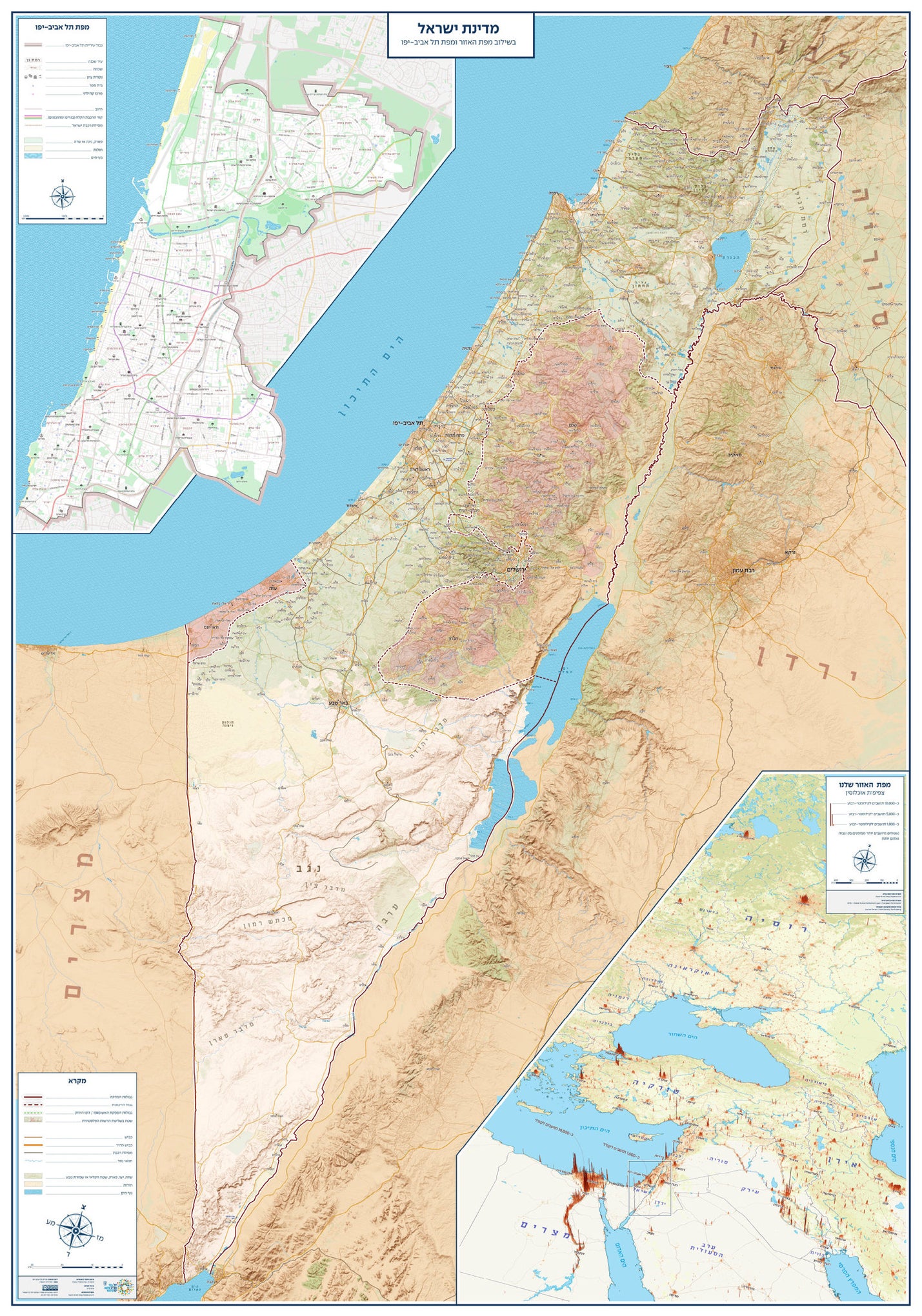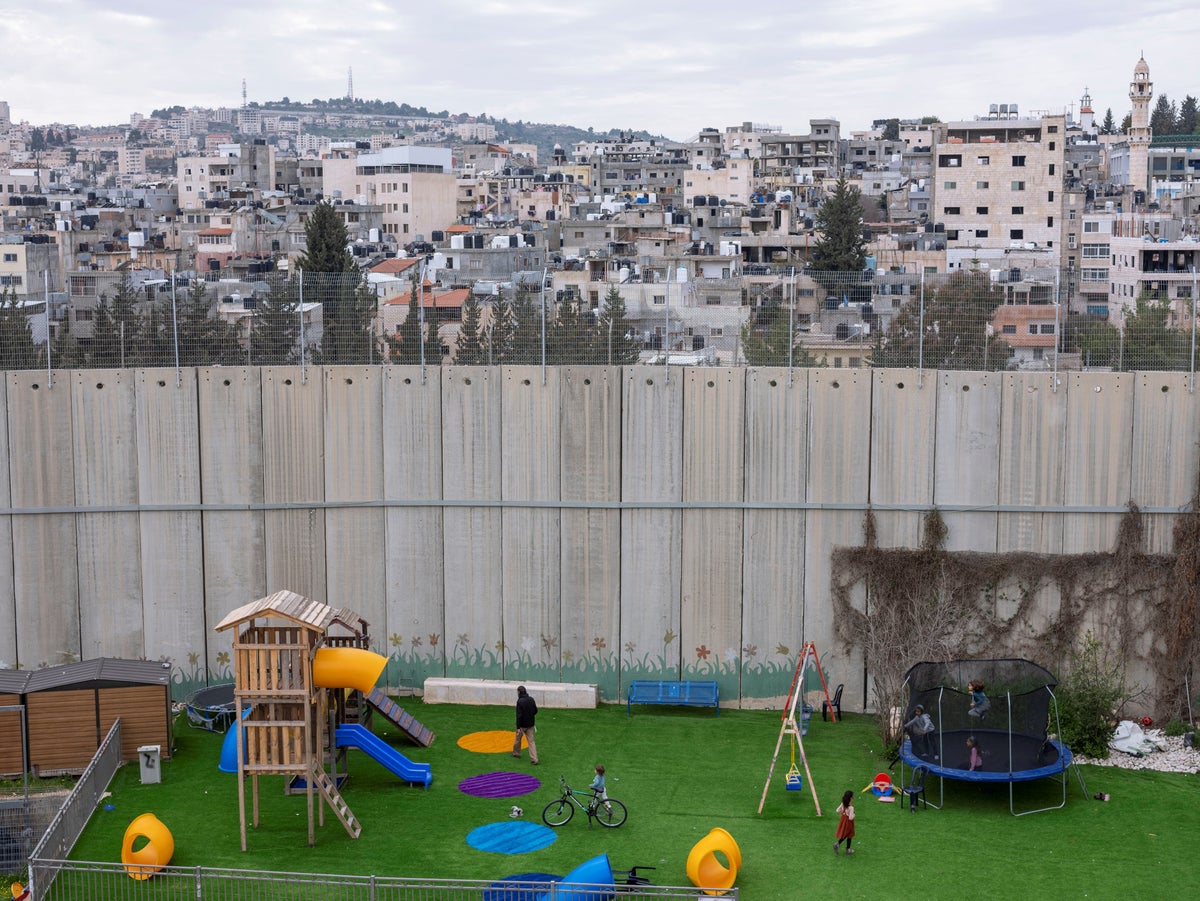The map commissioned by the Tel Aviv-Jaffa municipality for classrooms across Tel Aviv that Israel's Education Ministry ordered to be taken down
Growing up in the Israeli education system, what was evident is that our teachers shied away from discussing the moral and political aspect of what is, or should be, a fundamental issue for every Israeli citizen. Instead, we were educated to think that we’re right; that it’s us versus them, the few versus the mighty; that we have the most moral army in the world and we lived in the only democracy in the Middle East.
We were taught a narrative in which millennia of the Jewish people’s history was entirely reframed to serve the narrative arc of Zionism. If a subject wasn’t centered around Jewish suffering in exile or redemption in Israel, it was extracurricular. According to those parameters, school did in fact teach us everything we, as Jewish Israelis, need to know about the occupation, oppression and dispossession of Palestinians – absolutely nothing.
Not only do Palestinians not really exist in our history books, but if they do, they’re only featured as an obstacle in the way of Israelis living in peace.
In the eyes of the official Israeli narrative, the story of the Palestinians doesn’t deserve to be told because they don’t have a past or future. The exclusion of Palestinians from schoolbooks is in large part due to the fact that the Israeli education system doesn’t culminate in university, but in military service. The military is spoken about as a social duty, as a place of self-realization, and school is a place for molding future soldiers. The overriding ethos is of military service as a consensus and about existential danger, in which Palestinians are unavoidably cast as the adversary.
It’s not that Israelis aren’t aware of what’s going on. It’s that the separation wall, limited casualty “operations,” and the "Palestinian-free" normalization with Arab states through the Abraham Accords made it possible for us to live in this blissful ignorance. We Israelis don't actually need to know what’s happening – or what happened — because we will never face any consequences.
The erasure of the Green Line only highlights this absurd reality: We aren’t living under martial law. We have access to a plethora of information at our fingertips. Erasing a border, questionable or not, is such a blatant act that it points to the level of cognitive dissonance that the education system is formally demanding: denial of reality as a prerequisite to living in Israel.
Jewish settlers in the Rachel's Tomb compound in their playground next to Israel's separation wall, with the West Bank city of Bethlehem in the backgroundCredit: Oded Balilty /AP
The education system has been gaslighting Israelis into not recognizing what’s in front of their faces and reshaping the past. Israel isn’t unique. Every reactionary system distorts reality to shirk responsibility from its past and present crimes. Take Russia, where a law criminalizing speaking about Soviet atrocities and Nazi collaboration during WWII passed two weeks before Putin invaded Ukraine. Or in Texas, where teachers are now referring to slavery as "involuntary relocation." In Israel, the 2011 “Nakba Law” requires the state to fine local authorities and other state-funded bodies for holding events marking Israeli Independence Day as the Nakba Day.
The public in Israel always had a limited vocabulary to express how to end the conflict, first because so much of the facts aren’t in our curriculum or public discourse, and second, if they are, they’re constantly contested. (For me, the first time I saw the word “Nakba” was in English.) This is why so many young Israelis aren't against the occupation – society has learned to ignore it, and the government is doing all it can to keep it that way.
It's no wonder that in the Israeli school system is geared toward the "high-tech nation" and has jettisoned humanities from high school finals. Science and math have come to replace critical thinking and give us a narrow definition of success. Where there's no ideology, there's analytics.
It's also telling that Micah Goodman’s “shrinking the conflict” doctrine, which argues that the conflict cannot be resolved and should therefore be managed through investment and civic collaboration, has gained popularity. Like the erasure of the Green Line, Goodman and his ilk want to wish away the Palestinian struggle for self-determination. They think that if Israel lets Palestinians have their own roads but no capital, their yearning for freedom will go away. But there is no way to “shrink” an existential issue; there’s only suppressing it.
 Thursday, September 1, 2022 at 12:01PM
Thursday, September 1, 2022 at 12:01PM 
 APJP |
APJP |  Post a Comment |
Post a Comment | 

Reader Comments